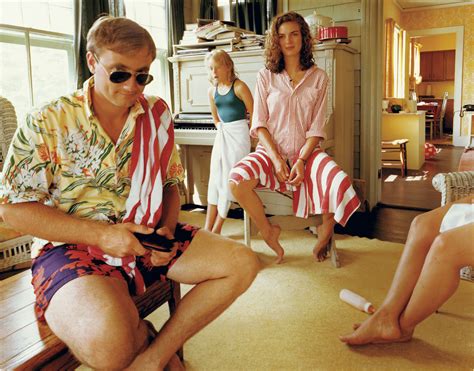A Quote by Sebastian Thrun
I was a popular professor. My teaching ratings were usually good. I could take complicated subjects and explain them in an entertaining way.
Related Quotes
My popularity has to do with the divorce between modern art, where everything is obscure, and the viewer who often feels he needs a professor to tell them whether it's good or not. I believe a painting has to talk directly to the viewer, with composition, color and design, without a professor to explain it.
The way the housing market imploded is obviously not an easy thing to explain. It's a little bit easier in a book - people can take their time, you can sort of go back and reread - but in a movie you've got two hours to not only explain things like collateralized debt obligations, but you also have to make it entertaining.
Richard Donner made great movies. Seminal movies. The Academy, though, and we have to be careful here, should recognize popular films. Popular films are what make it all work. There was a time when popular movies were commercial movies, and they were good movies, and they had to be good movies. There was no segregation between good independent films and popular movies.
Every single television product has the ambition to chase ratings, every one of them. Many have other ambitions, for many, ratings are not #1. But my experience on TV, and on the entertainment side, has been entirely ratings-based. When I look at TV I look at ratings. And I never second guess ratings. Never.
Your agent or manager tells you. They go, "You're out. They're gonna get a new guy." But then I didn't feel bad. I didn't take it personally. Not that I'm competitive at all. But you have pride in that, you know? You want your ratings to be good. But now that I'm 62, I don't really care about the ratings. I don't care about the reviews. I care about the work, and I care about the people that I'm working with, and I try to make the experience for them and myself as good as it can be.
Remember how pissed you got when we had to do all that reading about the Rising back in sixth grade? I thought you were going to get us both expelled. You said the only way things could've gotten as bad as they did was if people were willing to take the first easy answer they could find and cling to it, rather than doing anything as complicated as actually thinking.
There was a time in the 1930s when magazine writers could actually make a good living. 'The Saturday Evening Post' and 'Collier's' both had three stories in each issue. These were usually entertaining, and people really went for them. But then television came along, and now of course, information technology... the new way of killing time.
There was a time in the 1930s when magazine writers could actually make a good living. 'The Saturday Evening Post' and 'Collier's' both had three stories in each issue. These were usually entertaining, and people really went for them. But then television came along, and now of course, information technology...the new way of killing time.




































